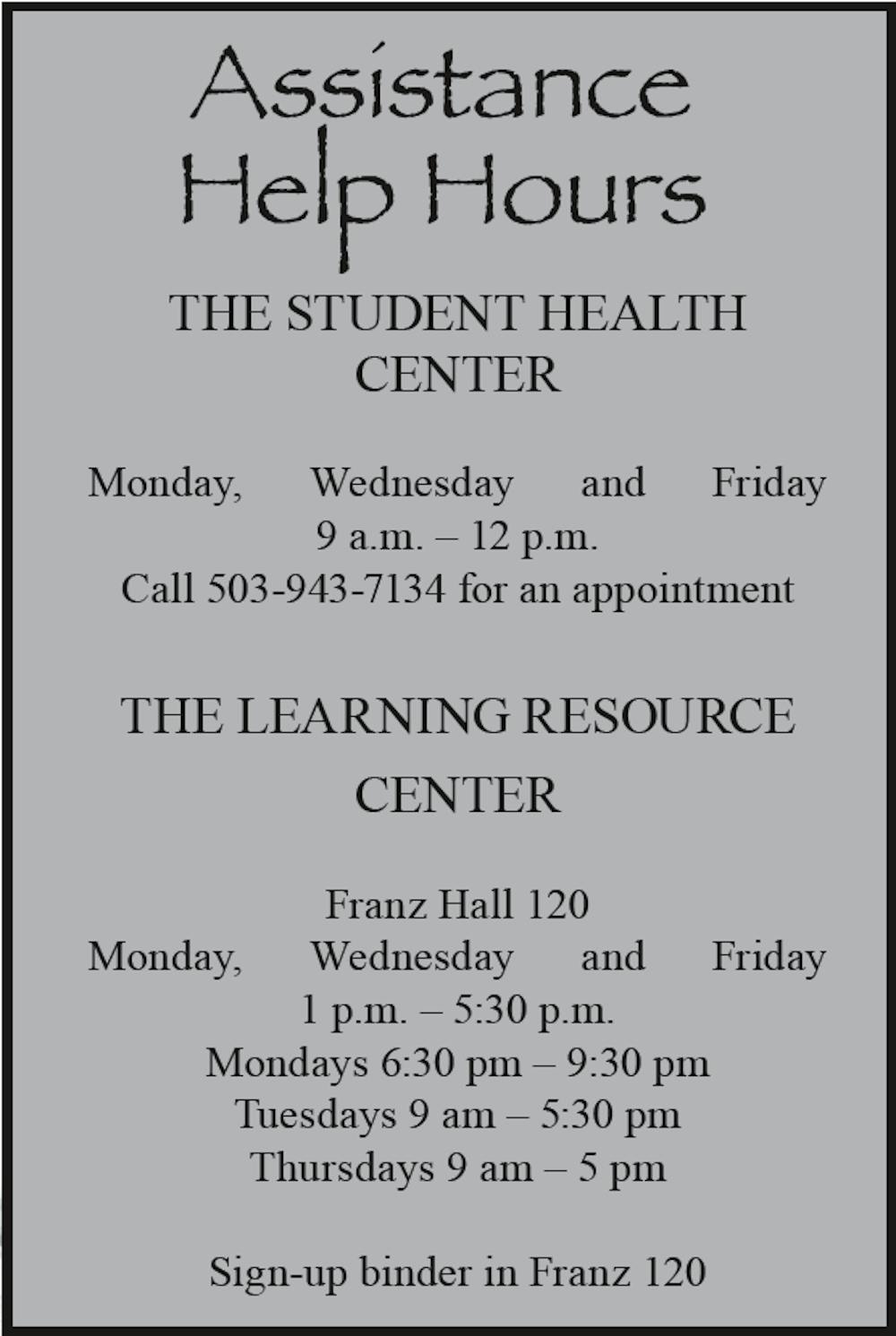As midterms are approaching, there are on-campus resources to help you study
Two UP students, Suzann Corrado and Ann Jacoby, study hard in the library. There are many resources available for dealing with stress and for giving studying tips. (The Beacon)
By Caitlin Yilek, Staff Writer -- yilek12@up.edu
Junior Kevin Convery does it in the Library. Junior Anna-Lise Krippaehne enjoys doing it with other people. Senior Simon Hepp has multiple locations where he likes to do it.
As midterms rapidly approach, so too does some quality time with your preferred method of studying.
Krippaehne, a nursing major, studies at her house with her roommates.
"I like studying in the living room where I have other people I can talk to because I can get clarification and we can bounce ideas off of each other," Krippaehne said.
"When I am studying for an exam it works better for me to study in a group so I can talk things out," she said.
While studying with other people may work well for Krippaehne, Hepp — a psychology and Spanish studies double major — and Convery — a global business and German studies double major — prefer to hit the books solo.
Though not all students have the same methods of learning course material, studying well means managing your time wisely and eliminating distractions.
Convery listens to classical music to keep him focused while he studies.
Hepp rotates between his house, The Commons, the Library and the study rooms in Shiley Hall to minimize his distractions.
"I learn better when I don't always have the same background," Hepp said. "Also, I won't get thrown off if one place is too crowded or too loud, I can just go to another spot."
Hepp, who studies five hours a day during the week, recommends that you don't study too much at one time.
"Sometimes it helps to take a break and go work out or listen to music," Hepp said. "You can usually be more productive if you don't try to study straight through and take some time to let (the material) soak in."
All three students find professors helpful when they need clarification on course material.
"Office hours are really important," Krippaehne said. "It's a good idea to create a relationship with your professors because they are advocates for you."
According to Br. Thomas Giumenta, C.S.C., the Learning Assistance Counselor in the University Health Center, students should not fear showing that they do not know the material and need help.
"The timidity to talk to professors needs to be overcome," Giumenta said. "Students shouldn't think that they need to come up with an excuse (as to why they don't understand the material)."
The Learning Assistance Program and the Freshman Resource Center are available to assist students in time management, test taking skills and study strategy development.
Krippaehne recommends that students start studying early. Writing out the material more than once can also be helpful.
"If there are any study sessions for a class, go to them," Krippaehne said, "They will really help. I always make a study guide or note cards for exams because writing out my notes another time helps to solidify it."
Though Krippaehne is nervous for her midterms, Hepp and Convery feel prepared.
"I always go to class and study hard," Convery said. "It's important to prolong your study period instead of cramming the night before."
Hepp finds he learns better when he takes the time to think about the material and realize why it is important that he knows and understands it.
"I think we forget we came to college to learn and not just get a job," Hepp said. "College is too expensive in terms of time and money not to appreciate it as much as possible."








